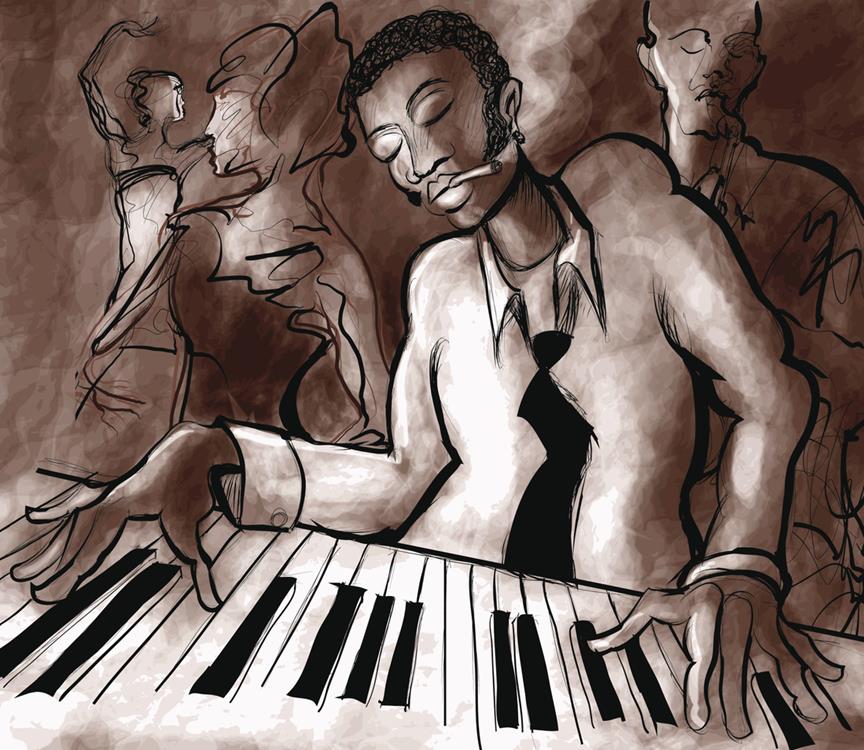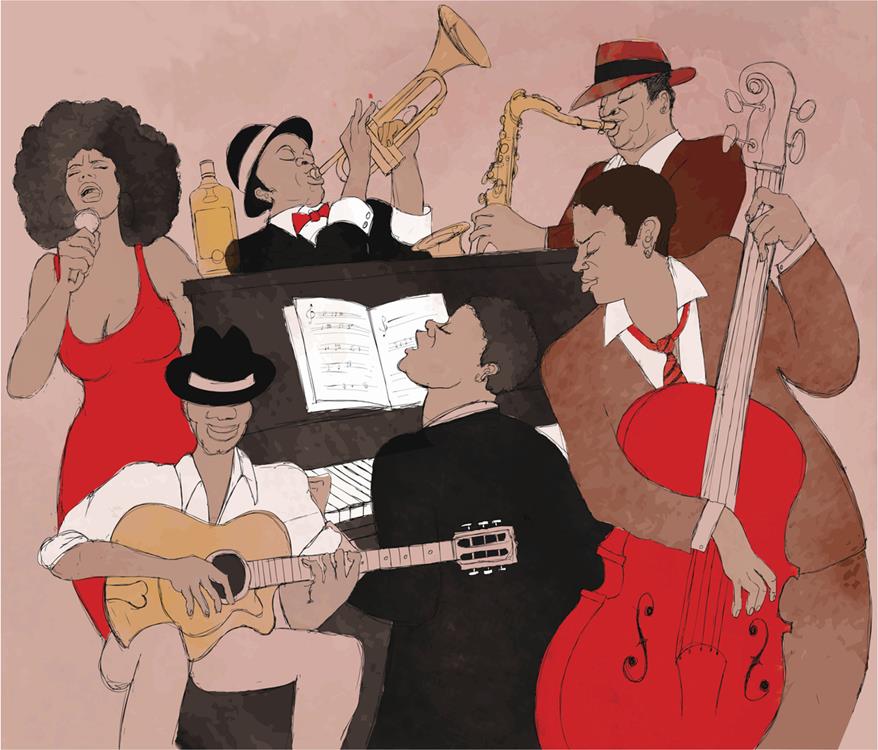Johnny Adams, often hailed as one of the most underrated voices in American music, carved a niche for himself with a career that spanned several decades and crossed multiple genres. Born in New Orleans in 1932, Adams’s journey through the realms of blues, jazz, R&B, and soul left an indelible mark on the music industry.
With a voice that could effortlessly transition from a powerful surge to a tender whisper, Adams earned the nickname “The Tan Canary” for his unique vocal range and emotive delivery. Despite facing the challenges of changing musical tastes and industry landscapes, his dedication to his craft and ability to connect with audiences remained constant. In this article, we will celebrate the legacy of Johnny Adams, a musical legend whose contributions continue to resonate with fans and fellow artists alike.
The Early Life of Johnny Adams
Johnny Adams was born on January 5, 1932, in New Orleans, Louisiana, a city known for its rich musical heritage. Growing up in a place steeped in jazz, blues, and gospel music, Adams was exposed to a vibrant tapestry of sounds from a very young age. His love for music was ignited in the local Baptist church, where he began singing as a child. The gospel choirs of New Orleans provided him with not just a platform but a rigorous training ground, where he honed his distinctive voice and developed a deep emotional range that would become his trademark.
In his teenage years, Adams’s talent began to attract attention beyond the church walls. By the early 1950s, he had started to perform in local clubs and bars, where he expanded his repertoire to include secular genres such as R&B and blues. This period marked the beginning of Adams’s journey into professional music, laying the groundwork for a career that would see him traverse various musical styles.
It was during these formative years that Adams caught the eye of Dorothy Labostrie, a songwriter best known for co-writing Little Richard’s “Tutti Frutti.” Labostrie’s introduction of Adams to Joe Ruffino, a local record label owner, proved to be a pivotal moment. In 1959, Adams recorded “I Won’t Cry” for Ruffino’s Ric label, a song that would become his first hit and establish him as a promising talent in the New Orleans music scene.
The Early Career of Johnny Adams
His collaboration with producer and arranger Dave Bartholomew, a key figure in the development of rock and roll, led to the release of several more tracks that showcased Adams’s versatile vocal talent. Among these, “Reconsider Me” (1969) stands out as a defining moment in Adams’s career. This soulful ballad reached the top 40 on the Billboard Hot 100 chart, bringing Adams national recognition and cementing his reputation as a masterful interpreter of emotion through song.
The early 1970s saw Adams exploring various musical styles, including blues and jazz, reflecting his broad range of influences and his refusal to be pigeonholed into a single genre. Despite the shifting musical landscape of the 1970s, which saw the rise of disco and funk, Adams remained true to his roots, continuing to perform and record music that resonated with his deep New Orleans heritage.
During this period, Adams worked with renowned producers and musicians, including Wardell Quezergue, an architect of the New Orleans sound, who helped refine Adams’s style and presentation. His collaboration with Quezergue on albums like “Heart & Soul” (1969) and “From the Heart” (1970) showcased Adams’s ability to blend soul, R&B, and blues into a unique sound that was both contemporary and deeply rooted in tradition.
Despite not achieving the same level of commercial success as some of his contemporaries, Adams’s work in the 1960s and 1970s earned him a loyal following and critical acclaim. His dedication to his craft and his ability to convey profound emotion through his music established him as an influential figure in the New Orleans music scene and beyond.
Johnny Adams in the 1980s
The 1980s and 1990s marked a period of resurgence and critical acclaim for Johnny Adams as he embraced new opportunities and collaborations that highlighted his enduring talent and versatility. During these decades, Adams found a new home with Rounder Records, a label known for its eclectic roster and commitment to quality music. This partnership proved fruitful, allowing Adams to explore a range of musical styles, from blues and jazz to soul and gospel, with greater depth and sophistication than ever before.
In 1983, Adams released “From the Heart,” his debut album for Rounder Records, which was met with widespread critical acclaim. This album was a clear indication of Adams’s maturity as an artist, featuring a mix of covers and original songs that showcased his exceptional vocal ability and emotional depth. The success of “From the Heart” was followed by several more albums for Rounder, including “Room with a View of the Blues” (1988) and “Good Morning Heartache” (1993). These recordings featured collaborations with some of the most respected names in music, including Dr. John and Aaron Neville, further cementing Adams’s reputation as a musician’s musician.
The 1990s saw Adams continuing to record and perform, earning accolades for his ability to imbue each song with his unique blend of intensity and tenderness. His 1998 album, “Man of My Word,” received particular praise for its sophisticated arrangements and Adams’s nuanced vocal performances. The album included a mix of blues, R&B, and jazz, highlighting Adams’s skill in navigating diverse musical landscapes.
Throughout these decades, Adams remained a beloved figure in his native New Orleans, regularly performing at local clubs and festivals. His contributions to the city’s musical heritage were recognized with numerous awards and honors, including induction into the Louisiana Music Hall of Fame.
Johnny Adams’s Legacy
Johnny Adams sadly passed away on September 14, 1998, at the age of 66. His death marked the end of a prolific career that had spanned over four decades, leaving behind a rich musical legacy that continues to inspire and influence artists and fans alike. Adams had been battling prostate cancer, a struggle that ultimately led to his untimely passing. Despite his health challenges, Adams remained dedicated to his music, performing and recording almost until his final days.
Adams’s death was deeply felt within the music community and by fans around the world. Tributes poured in, celebrating his life and contributions to music. In New Orleans, his hometown and the place where his musical journey began, Adams was mourned as a local legend who had risen to national and international acclaim. The city paid homage to Adams with a musical tribute that reflected the profound impact he had on New Orleans’s cultural landscape.
His funeral was attended by family, friends, fellow musicians, and scores of fans who had been touched by his music. The service highlighted not only Adams’s achievements as a musician but also his qualities as a person – his warmth, his generosity, and his deep commitment to his craft.
In the years following his passing, Johnny Adams’s music has continued to be celebrated. His albums have been reissued, and previously unreleased recordings have been made available, ensuring that his voice continues to be heard by new generations of listeners. His influence can be seen in the work of contemporary artists across a range of genres, from R&B and soul to jazz and blues, who cite Adams as a key inspiration.
Johnny Adams, with his remarkable vocal range and emotional depth, has left behind a legacy of timeless hits. His music, which spans R&B, soul, blues, and jazz, showcases his versatility as an artist. Here are some of the top hits that define Johnny Adams’s illustrious career:
- “I Won’t Cry” (1959): This song marked Adams’s debut on the music scene, capturing the attention of R&B enthusiasts with its heartfelt lyrics and Adams’s soulful delivery. It laid the foundation for his successful career.
- “Reconsider Me” (1969): Perhaps Adams’s most famous track, “Reconsider Me,” is a soulful ballad that showcases his ability to convey deep emotion, earning him a spot in the Top 40 of the Billboard Hot 100 chart.
- “Release Me” (1968): Covering this classic, Adams added his unique touch, making it a beloved track among fans. His version stands out for its emotional intensity and vocal prowess.
- “A Losing Battle” (1962): Written by Mac Rebennack (also known as Dr. John), this song is a testament to Adams’s ability to blend blues and soul, creating a sound that’s both unique and deeply resonant.
- “Room with a View” (1988): Released later in his career, this track highlights Adams’s continued relevance in the music industry, showcasing his matured voice and sophisticated musical style.
- “There Is Always One More Time” (1991): This song from the album of the same name exemplifies Adams’s jazz influences and his ability to effortlessly switch genres while maintaining his signature emotional depth.
Interesting Facts About Johnny Adams
Johnny Adams has a life filled with intriguing details that extend beyond his music. Here are ten interesting facts about Johnny Adams that shine a light on the man behind the microphone:
- Early Musical Influences: Before venturing into secular music, Adams sang in his local church choir, where he developed a strong foundation in gospel music that would influence his later work.
- Nickname Origin: His exceptional vocal range earned him the nickname “The Tan Canary,” a moniker that highlighted both his unique voice and his standout performances.
- Cross-Genre Exploration: Adams was known for his versatility, seamlessly moving between R&B, soul, jazz, and blues, a testament to his broad musical tastes and abilities.
- Collaboration with Legends: Throughout his career, Adams worked with several renowned musicians and producers, including Dr. John and Allen Toussaint, enriching his music with their expertise.
- Late Bloomer: Unlike many artists, Adams’s greatest commercial successes came later in his career, proving that his talent only deepened with time.
- Musical Legacy: Despite not achieving mainstream fame, Adams is revered by music aficionados and fellow artists for his contributions to the New Orleans music scene and beyond.
- Posthumous Recognition: After his passing, Adams’s music saw a resurgence in popularity, with new fans discovering his work and longtime admirers continuing to celebrate his legacy.
- Diverse Discography: Adams’s extensive discography includes numerous albums and singles, showcasing his adaptability and relentless creativity.
- Love for New Orleans: A proud New Orleanian, Adams’s music was deeply influenced by the city’s rich cultural tapestry, and he remained closely connected to his roots throughout his life.
- Inspirational Figure: Adams’s journey from gospel choirs to national stages serves as an inspiration to aspiring musicians, demonstrating the power of perseverance and passion in achieving musical excellence.
Conclusion
Despite facing challenges and navigating the complexities of the music industry, Adams remained true to his artistic vision, leaving behind a body of work that speaks to the universal themes of love, loss, and the human experience. Johnny Adams may no longer be with us, but his voice, his passion, and his indelible impact on the music world will forever remain a source of inspiration and admiration.





